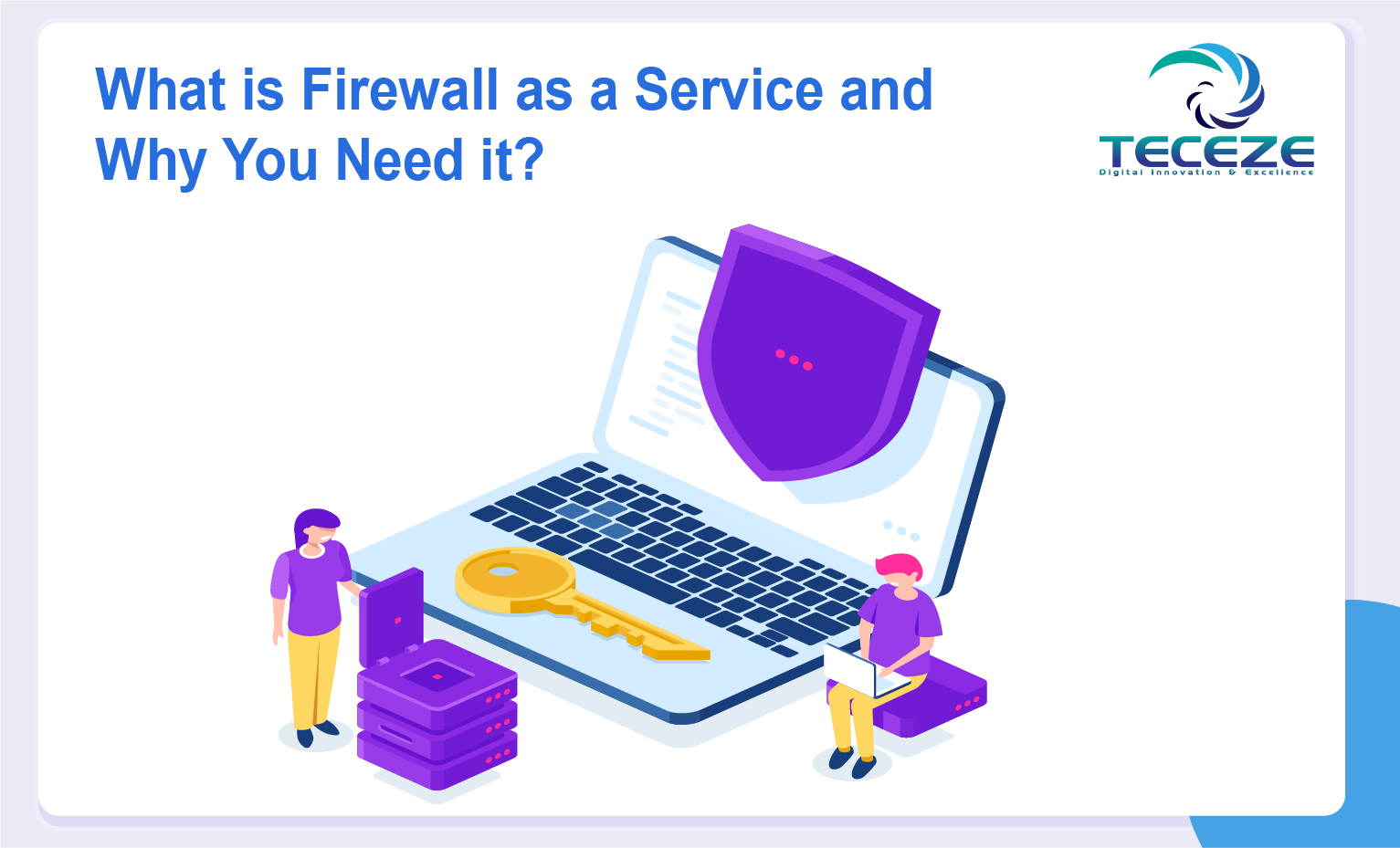What is Firewall as a Service and Why You Need it?
It should be of paramount concern to every organisation to protect your network from internet-based threats. To secure your network perimeter, Teceze FWaaS provides a fully managed, Unified Threat Managed service.
Teceze's FWaaS service provides class-leading threat protection underpinned by Teceze's business-grade network and support services, using Fortinet's FortiGate firewall safety and Unified Threat Management platform.
What is a Firewall as a Service?
Firewall as a service (FWaaS) refers to a cloud firewall that offers advanced features such as access controls, such as URL filtering, advanced threat protection, IPS, and Layer 7/next-generation firewall DNS security (NGFW).
The FWaaS concept is not simply about virtualizing appliances. FWaaS allows organisations to eliminate and simplify their IT infrastructure with firewall appliances. Centralized single console management allows organizations to eliminate the challenges of NGFW appliances-related change control, patch management, coordination of outage windows, and policy management while delivering consistent policies across the organization wherever users connect.
Why businesses need a Firewall as a Service?
Earlier when businesses kept all their software applications in a single, on-site data center, they followed a "castle and moat" approach to protecting their networks, with on-site firewalls acting as the primary access control points. However as businesses migrated to the cloud, implemented IaaS and PaaS strategies for infrastructure and platform-as-a-service, introduced more mobile devices owned by businesses and workers to their networks, and started using more apps and data hosted on third-party infrastructure i.e. software as a service or SaaS), they soon found that they no longer had clearly established network perimeters.
Also, they found that:
They no longer had any insight into or power of, their entire networks because many of their applications and data were now being run and controlled on third-party infrastructure.
Since businesses and cloud providers share a joint responsibility to ensure safety in cloud environments, businesses realized that they could not just rely on their cloud providers to oversee all their security. They will have to find a way for themselves to do so.
This prompted many businesses to reconsider their approach to security entirely. It also prompted them to start using FWaaS as a part of their cloud infrastructure to deliver firewalls and other network security capabilities.
Today thanks to this strategy, businesses can:
- Aggregate all multi-source traffic into the cloud (e.g. on-site data centers, branches, smartphone users, cloud infrastructure).
- Use and execute security measures systematically across all locations and users.
- Gain full visibility and control over their networks without physical appliances needing to be deployed.
Advantages of Firewall as a Service
FWaaS, like other cloud-based applications, offers its users a range of advantages. Some examples of advantages that organisations can gain from the implementation of FWaaS include:
Unified Security Policy: Firewalls, but only for the traffic that passes through them, will implement security policies. With FWaaS, routing all of its traffic through one of its firewalls is much simpler for an enterprise, allowing consistent and cohesive security policies to be applied across its entire network.
Flexible Deployment: A physical firewall appliance's possible deployment locations are restricted by the geographic footprint of an entity. As a cloud-based resource, FWaaS does not share the same restrictions.
Simplified Deployment and Maintenance: It can be a complex process to buy, deploy, and configure physical firewall appliances and requires advanced knowledge to ensure that all devices are properly installed and set up. Many of these configuration steps are removed with FWaaS, as these firewalls are built in the cloud as virtualized appliances.
Improved Scalability: Security scalability can be constrained by the available hardware for physical firewall appliances. As the pool of available resources will expand and contract as the needs of an enterprise change, FWaaS provides greatly enhanced scalability.
Increased Flexibility: appliance-based firewalls provide limited flexibility as changes to physical components are needed for updates and network restructuring. FWaaS helps a business to more quickly respond to surges in network traffic and the demand for security features.
How FWaaS will affect the IT team of your organization?
IT teams take a lot of time to figure out how much appliance power is needed at the moment and in the future as your company expands. Increases in SSL traffic levels, for instance, will affect processing times and ability and may even force unplanned downtime. Auto-scaling means that there are no delays to the everyday business activities with FWaaS in place.
Moreover, without caring about individual locations, the centralized security strategy that exists in the enterprise would make it much easier to handle distributed appliances.
Why choose Teceze to protect your business?
Best-in-class security provided by a proactive and competent team.
At Teceze, since 2012, we have been protecting and securing companies across the UK and US and we tailor our solutions to fit the working practices of our customers.
In setting up and monitoring company firewalls, our proactive team is highly experienced, and they are well-regarded for their passion and accessibility as well as for their technological ability.
A firewall is a security device computer hardware or software that can help protect your network by filtering traffic and blocking outsiders from accessing data on your computer.
 Back to Insights
Back to Insights
 Previous
Previous 